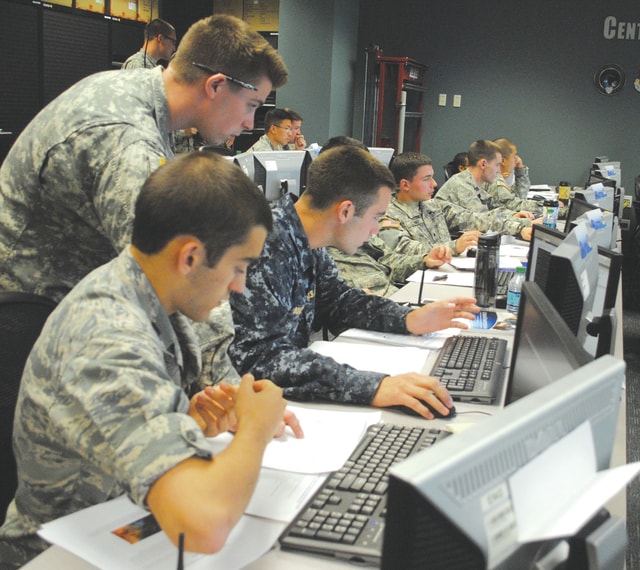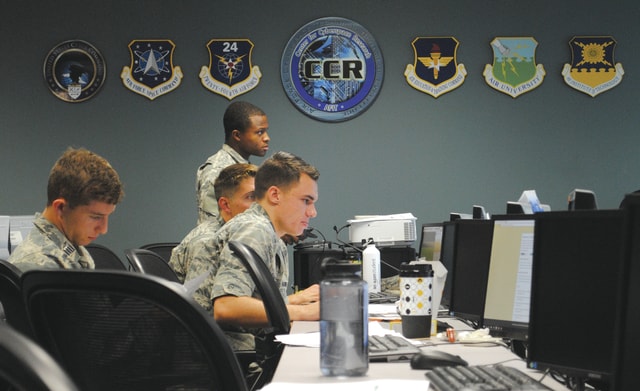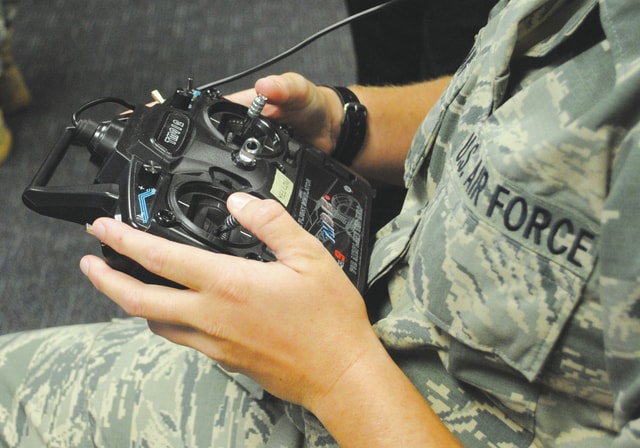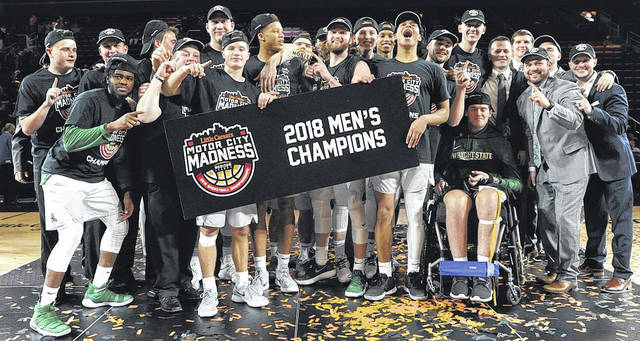


By Whitney Vickers
WRIGHT-PATTERSON AIR FORCE BASE — Five teams of eight individuals competed against each other at Wright-Patterson Air Force Base Monday to find out who could hack the other “space stations” the fastest while keeping their own safe.
The event, hosted by the Air Force Institute of Technology Center for Cyberspace Research, was the first time the 3D virtual world operations and network security lab competition had taken place. It invited Advanced Cyber Education (ACE) program participants, including cadets from the Army, Air Force and Navy, to participate in hacking activities. The program included computers, projector screens and joysticks, and participants hacked into competing teams systems as if it were a video game.
ACE is a four-week camp, which focuses on strengthening cadets skills related to cyberspace technology.
“We’ve created a 3D virtual world simulation that helps cadets deploy cyber offense and cyber defense techniques,” said Scott Nykl, assistant professor of computer science at AFIT. “It will give real-world experience to all the cadets in a condensed time-frame that also saves time and money. We’re able to create the simulation, create the environment, then bring the cadets through them, train them, have them learn and then do it all over again without building an infrastructure. It’s all virtual on the computer.”
The cadets were tasked with hacking into other teams space station systems’ to take over, while keeping their own safe. AFIT Professor and Director for Center of Cyberspace Research Director Robert Mills said learning offense tactics for hacking into a system is beneficial as understanding a system’s weak points allow for a better understanding of how it works and how to defend it most effectively.
“It’s becoming self-evident that cyber warfare and information warfare is sort of the way wars are fought in a modern era,” Nykl said.
Participants in the ACE program meet each day for typically up to seven hours per day, according to Mills. He said by the end of the four-week program, participants have a “hackfest”, in which they are assigned with a “capture-the-flag” type of hacking activity.
Knowledge of type of technology is essential for modern military members to understand, according to Mills. He said World War II aircraft did not depend on software and was simple compared to modern aircraft; the Vietnam era saw the emergence of software usage for aircraft, which displays advancing technology.
“Fast forward to the F-22 or F-35 — these systems are so dependent upon information that without the information, the [air crafts] ability to conduct the types of missions we want could be put at risk,” Mills said. “That means you have to have people, such as [ACE students] who are going to be working hard to ensure that, not only is the system airworthy, but we also that whatever information flow the system requires, that those are secured to the extent that we can.”





